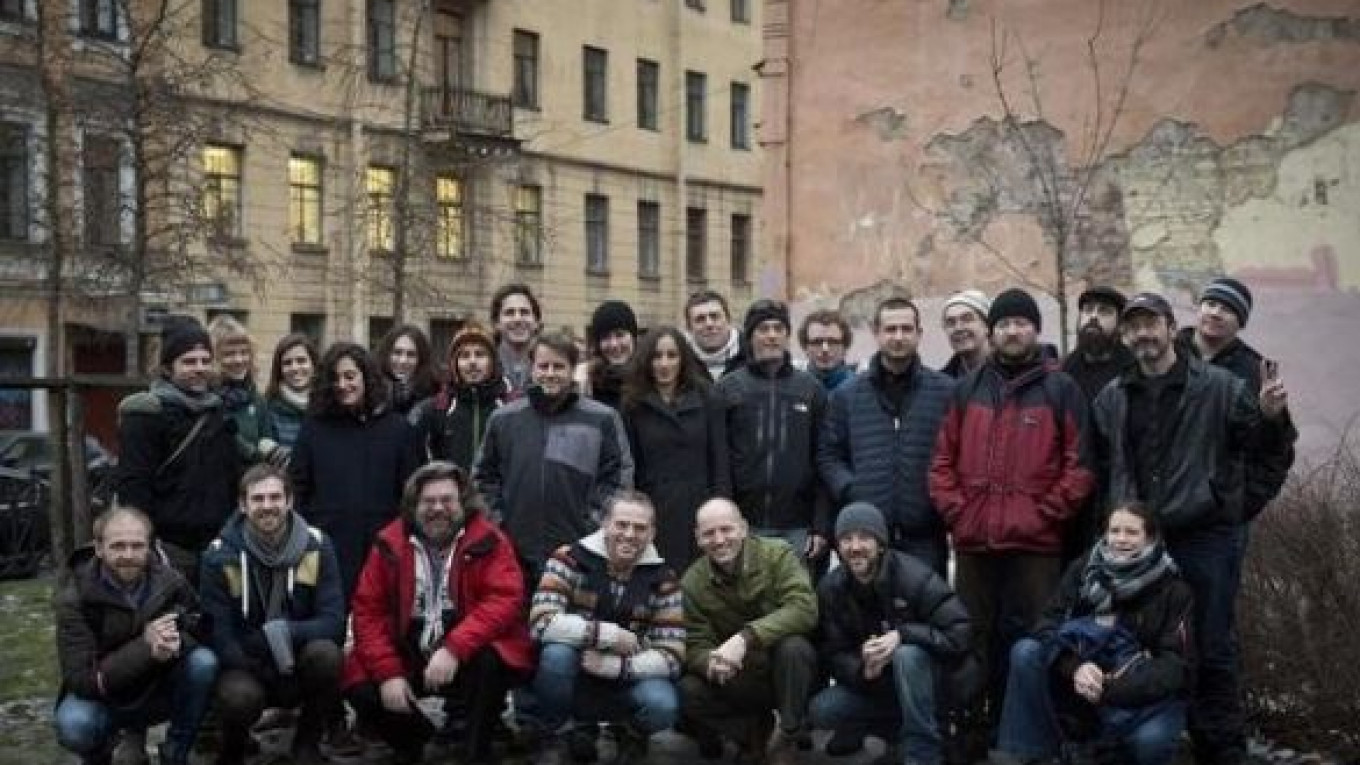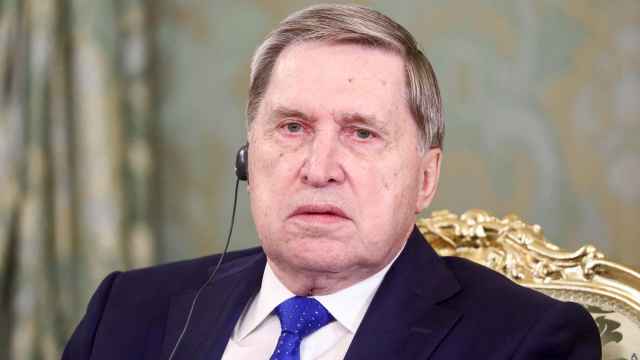All four State Duma factions said Tuesday that they would support a draft bill granting amnesty to about 25,000 people in honor of the 20th anniversary of the Constitution, with the amnesty likely to be implemented starting this month.
A draft bill was submitted to the Duma by President Vladimir Putin late Monday detailing the scope of the amnesty, which could free numerous high-profile prisoners, including several suspects in the Bolotnoye case and Pussy Riot members Nadezhda Tolokonnikova and Maria Alyokhina.
According to the bill submitted by Putin, eligibility would be limited to women with young children, war veterans, police officers, elderly people and first-time offenders who have not committed violent crimes and have been sentenced to no more than five years in prison.
“We believe that the 20th anniversary of the Constitution is a worthy reason to hold such an amnesty,” Sergei Zheleznyak of ruling party United Russia told reporters Tuesday.
Some factions said they would request amendments to the bill, while human rights activists who earlier estimated that up to 100,000 people could benefit from the amnesty said they were concerned that it might be not as broad as they hoped to see it.
Liberal Democratic Party head Vladimir Zhirinovsky said his faction was going to make an amendment by adding eligibility for people charged with incitement of ethnic hatred, as he believes it is “purely a political article.” About 100 people convicted under the statute could be freed by the amnesty, he said.
Sergei Mironov, leader of A Just Russia, said his party had also prepared amendments but would support the final version approved by the State Duma, while Communist Party leader Gennady Zyuganov said there should be measures taken to employ all those covered by the amnesty.
It had been expected that the amnesty would come into effect on Dec. 12, to mark Constitution Day, but Pavel Krasheninnikov, head of the Duma's Legislation Committee, said the amnesty bill would be reviewed and voted on by Dec. 21.
"We do not have a choice — we must review this question either this week or next," he said, Itar-Tass reported Tuesday. "The amnesty must take effect by the end of the year.”
Since the draft bill does not specifically name those who could be pardoned but outlines the categories of people affected, speculation has been rife about who could be freed.
Kremlin human rights council head Mikhail Fedotov said Tuesday that the amnesty would be “broad enough” and that it would apply to activists of the Greenpeace “Arctic 30” and to most of the protesters currently on trial in connection with violence at an opposition rally on Bolotnaya Ploshchad in May 2012.
The amnesty could also apply to Pussy Riot members Tolokonnikova and Alyokhina, both of whom are serving two-year jail terms for their 2012 “punk prayer” inside Moscow's Christ the Savior Cathedral, as they both have young children.
Former Defense Minister Anatoly Serdyukov, who last month was charged with negligence in causing damages of 56 million rubles to the state, could also qualify for the amnesty. He may still face the graver charge of abuse of power, which carries a sentence of up to four years behind bars, but if the amnesty is applied to him the criminal case will be closed.
The amnesty will almost definitely not apply to former oil tycoon Mikhail Khodorkovsky, whose 11-year term will expire next year, or other people convicted in the cases involving his dissolved Yukos oil company. Nor is it expected to pardon opposition leader Alexei Navalny, who received a five-year suspended sentence this year for embezzlement. Both those cases are widely seen as having been politically motivated.
Vladimir Vasilyev, a deputy Duma speaker from United Russia, said only about 2,000 of the 25,000 people who will qualify for the amnesty are in prison, while the convictions of another 17,500 people that did not result in prison terms would see their sentences canceled. This would apply partly to those on probation or parole.
A further 6,000 people could have charges against them dropped, Vasilyev said, adding that implementing the amnesty could take about six months.
Oleg Orlov, a leader of the Memorial human rights group, said he had expected a broader amnesty but welcomed "even this version,” news agencies reported. "At least some people will go free," he said.
"But the part of Russian society that called for an amnesty had understood it in a broader sense and we are, of course, disappointed," Orlov said. "It is hard to imagine what a disappointment it would be for those who are in prison and for their relatives that this amnesty was not truly broad."
Contact the authors at [email protected] and [email protected]
A Message from The Moscow Times:
Dear readers,
We are facing unprecedented challenges. Russia's Prosecutor General's Office has designated The Moscow Times as an "undesirable" organization, criminalizing our work and putting our staff at risk of prosecution. This follows our earlier unjust labeling as a "foreign agent."
These actions are direct attempts to silence independent journalism in Russia. The authorities claim our work "discredits the decisions of the Russian leadership." We see things differently: we strive to provide accurate, unbiased reporting on Russia.
We, the journalists of The Moscow Times, refuse to be silenced. But to continue our work, we need your help.
Your support, no matter how small, makes a world of difference. If you can, please support us monthly starting from just $2. It's quick to set up, and every contribution makes a significant impact.
By supporting The Moscow Times, you're defending open, independent journalism in the face of repression. Thank you for standing with us.
Remind me later.






